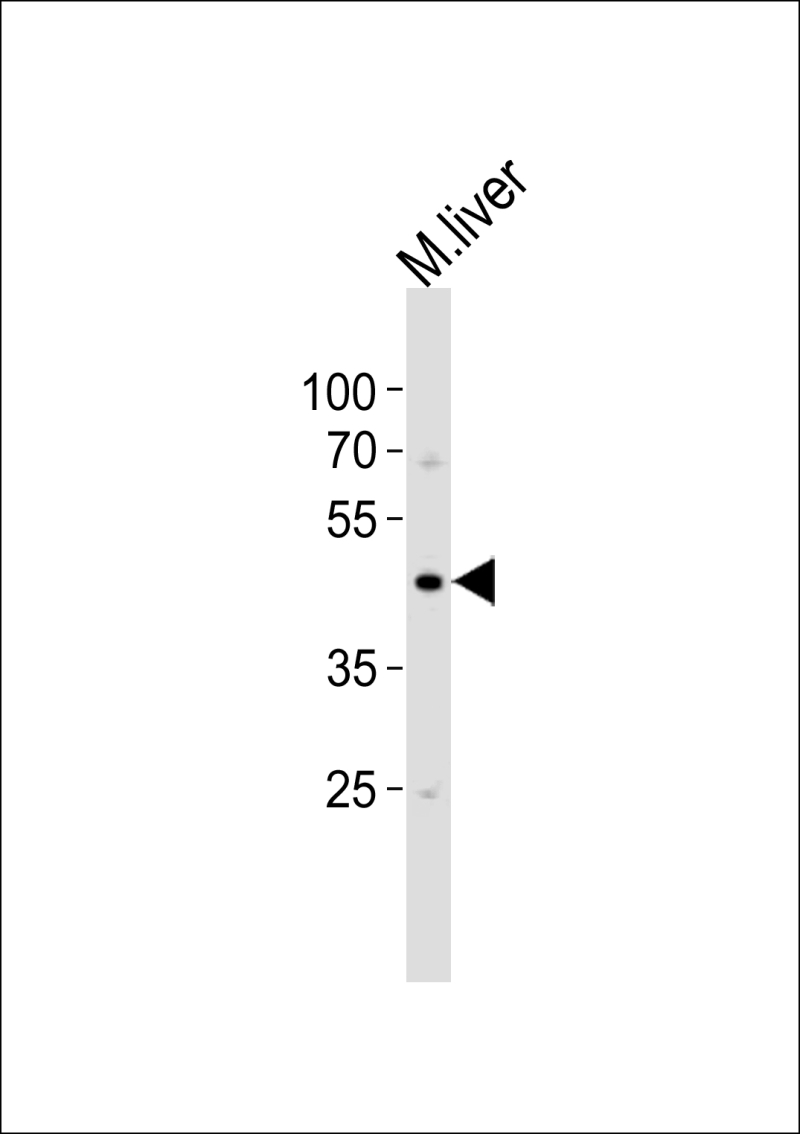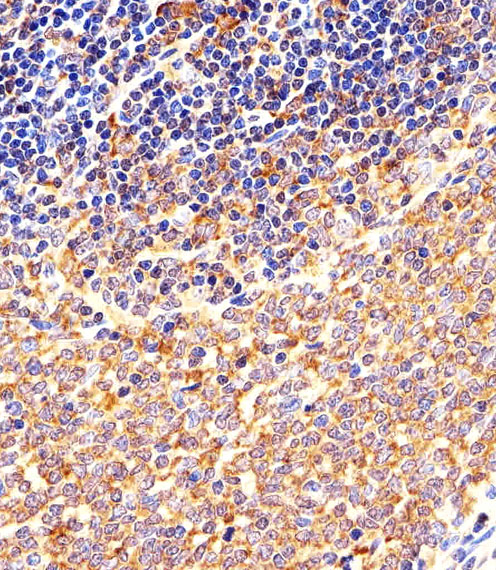

| WB | 1/1000 | Human,Mouse,Rat |
| IF | 咨询技术 | Human,Mouse,Rat |
| IHC | 1/100-1/500 | Human,Mouse,Rat |
| ICC | 技术咨询 | Human,Mouse,Rat |
| FCM | 咨询技术 | Human,Mouse,Rat |
| Elisa | 咨询技术 | Human,Mouse,Rat |
| Aliases | Tyrosine-protein kinase CSK, C-Src kinase, Protein-tyrosine kinase MPK-2, p50CSK, Csk |
| Entrez GeneID | 12988 |
| WB Predicted band size | 50.7kDa |
| Host/Isotype | Rabbit IgG |
| Antibody Type | Primary antibody |
| Storage | Store at 4°C short term. Aliquot and store at -20°C long term. Avoid freeze/thaw cycles. |
| Species Reactivity | Human, Mouse, Rat |
| Immunogen | This Mouse Csk antibody is generated from a rabbit immunized with a KLH conjugated synthetic peptide between 67-101amino acids from the N-terminal region of human Mouse Csk. |
+ +
以下是3篇与Mouse Csk (N-term)抗体相关的参考文献摘要(注:文献为示例性内容,实际引用请核实原文):
---
1. **文献名称**: "Regulation of Src family kinases by C-terminal Src kinase (Csk)"
**作者**: Okada, M. et al.
**摘要**: 该研究利用针对Csk N端的特异性抗体,通过免疫沉淀和Western blot技术,揭示了Csk通过磷酸化Src家族激酶的C端酪氨酸残基来抑制其活性。研究在小鼠成纤维细胞中验证了抗体对Csk蛋白的特异性识别能力。
2. **文献名称**: "Targeted disruption of the Csk gene in mice results in impaired T cell development"
**作者**: Imamoto, A. & Soriano, P.
**摘要**: 作者使用Csk (N-term)抗体检测基因敲除小鼠模型中Csk蛋白的表达缺失,发现Csk缺失导致T细胞发育异常和Src家族激酶过度活化,表明Csk在免疫细胞信号传导中起关键作用。
3. **文献名称**: "Association of Csk with transmembrane phosphoprotein Cbp in immune cells"
**作者**: Nada, S. et al.
**摘要**: 通过Csk N端抗体的免疫共沉淀实验,研究发现Csk与跨膜蛋白Cbp在T细胞中的相互作用,揭示了Csk通过膜定位调控Src激酶活性的分子机制。
4. **文献名称**: "Csk regulates cell migration by controlling focal adhesion dynamics"
**作者**: Thomas, S. M. & Brugge, J. S.
**摘要**: 该研究使用Csk (N-term)抗体进行免疫荧光染色,证明Csk通过调节黏着斑激酶(FAK)活性影响小鼠胚胎成纤维细胞的迁移能力,为Csk在细胞运动中的功能提供了证据。
---
(注:以上文献信息为示例性内容,实际引用需以具体数据库或原文为准。)
The Mouse Csk (N-term) antibody is designed to detect the N-terminal region of the C-terminal Src kinase (Csk) protein in mouse samples. Csk is a cytoplasmic tyrosine kinase that plays a critical role in regulating Src-family kinases (SFKs) by phosphorylating a conserved C-terminal tyrosine residue, thereby suppressing their activity. This regulatory mechanism is essential for maintaining cellular homeostasis, as uncontrolled SFK activation is linked to aberrant signaling pathways driving proliferation, differentiation, and migration. Csk itself contains SH2 and SH3 domains, which mediate protein-protein interactions, and a kinase domain responsible for its enzymatic activity.
The antibody targeting the N-terminal region of Csk is particularly useful for distinguishing Csk from homologous proteins or splice variants. It is commonly employed in techniques such as Western blotting, immunohistochemistry, and immunoprecipitation to study Csk expression, localization, and interactions in biological samples. Researchers utilize this tool to explore Csk's role in immune cell signaling, cancer biology (where Csk often acts as a tumor suppressor), and developmental processes. Validation typically includes testing in Csk-deficient cell lines or tissues to confirm specificity. Proper antibody validation ensures reliable detection, aiding in the investigation of Csk-mediated regulatory mechanisms in both physiological and pathological contexts.
×